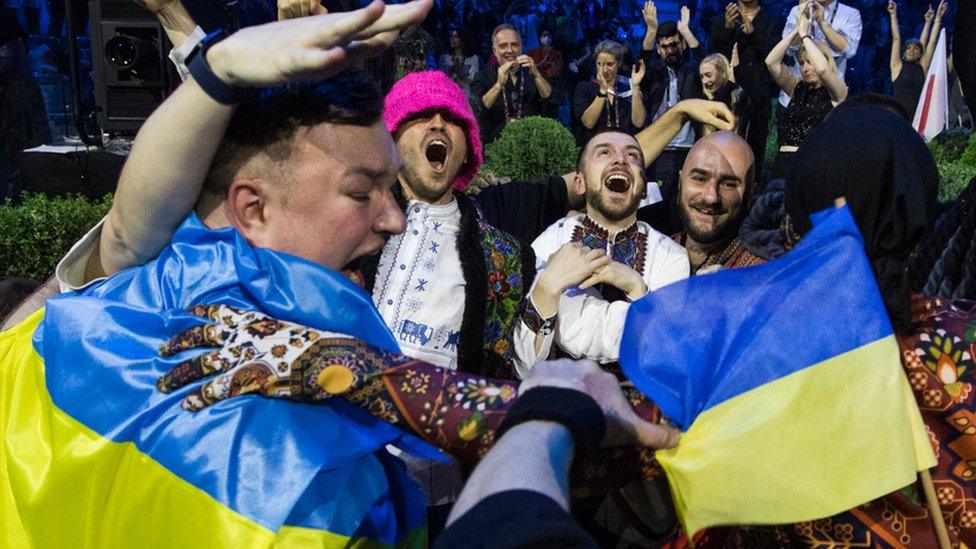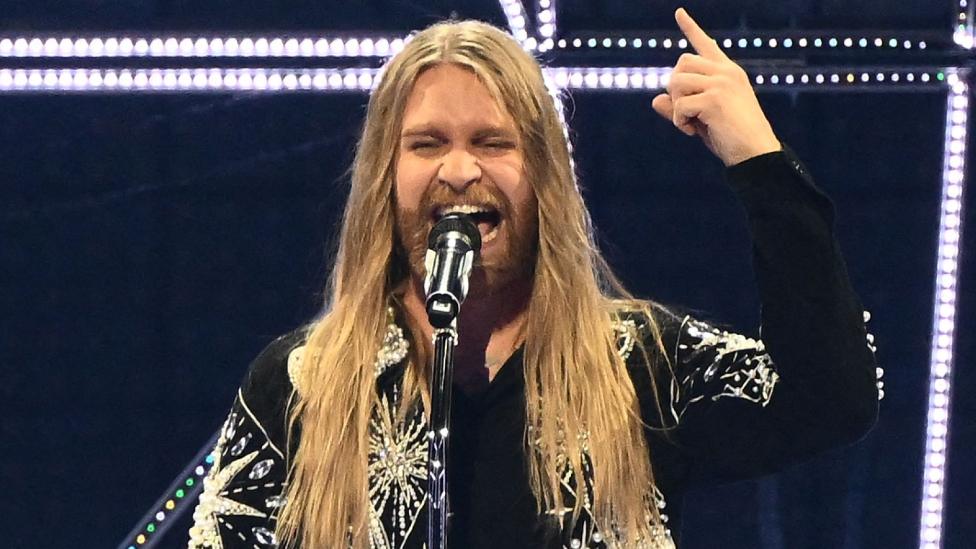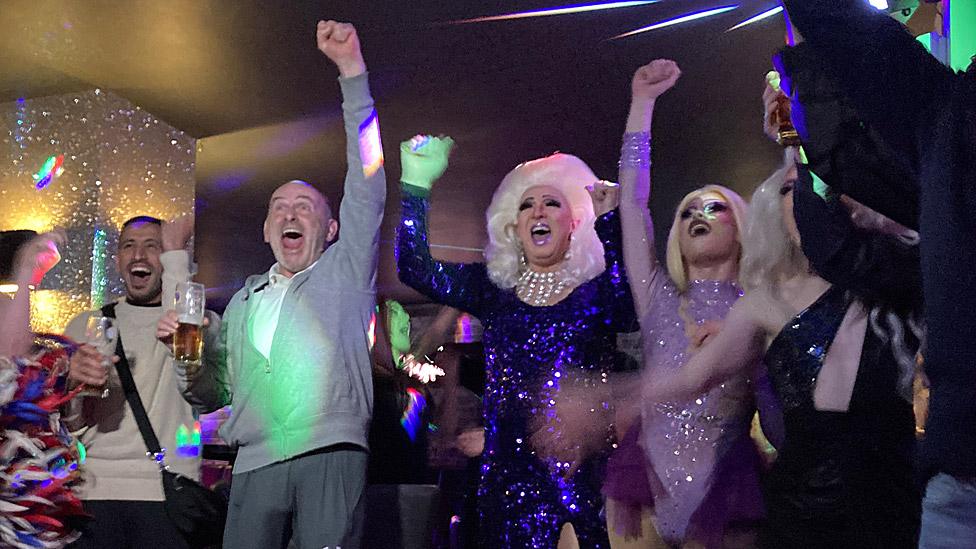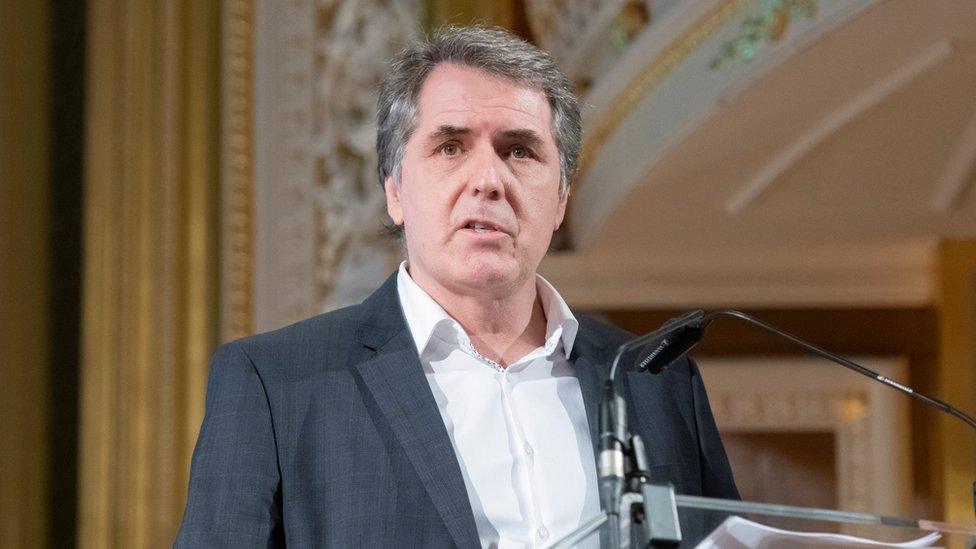Eurovision: Montenegro and North Macedonia pull out of Liverpool contest
- Published

Vladana represented Montenegro at this year's Eurovision Song Contest
Montenegro and North Macedonia will not compete in next year's Eurovision Song Contest because of how much it will cost them to enter.
Broadcasters pay a fee to take part in the competition but the amount differs, external depending on the size of the country.
BBC News understands some countries have been asked to pay more after Russia was banned from the contest.
Russia, a large financial contributor, was expelled from this year's competition after it invaded Ukraine.
"In addition to the significant costs of registration fees, as well as the cost of staying in Great Britain - we also faced a lack of interest from sponsors, so we decided to direct existing resources to the financing of current and planned national projects," Montenegro's public service broadcaster RTCG said.

Ukraine's Kalush Orchestra won this year's competition in Turin, Italy
The total cost for all broadcasters involved to enter normally adds up to around £5m, but exactly how much each participant pays isn't made public.
It is also understood some other countries considered withdrawing as a result of the additional cost.
Between £8m and £17m is expected to be paid by the BBC to stage the event, on behalf of Ukraine, in Liverpool in May 2023.
The two broadcasters which have pulled out - RTCG and MRT - both failed to make it past the semi-final stages of this year's contest in Turin, Italy.
MRT said in a statement, external "the increased registration fee for the participation", as well as the energy crisis in North Macedonia, forced them to make the decision.
Song contest organisers - the EBU - said it is "committed to keeping the costs of taking part as affordable as possible" and its fees are "calculated based on the number of countries competing" while taking into account "the member's relative size and financial status".
A full list of countries heading to Merseyside in 2023 is expected to be confirmed later this week.
Related topics
- Published7 October 2022

- Published7 October 2022

- Published11 October 2022
